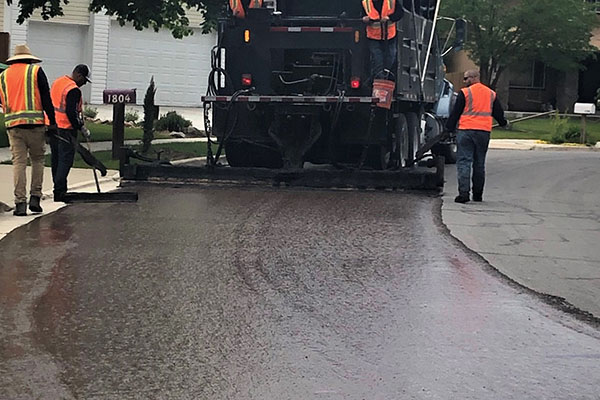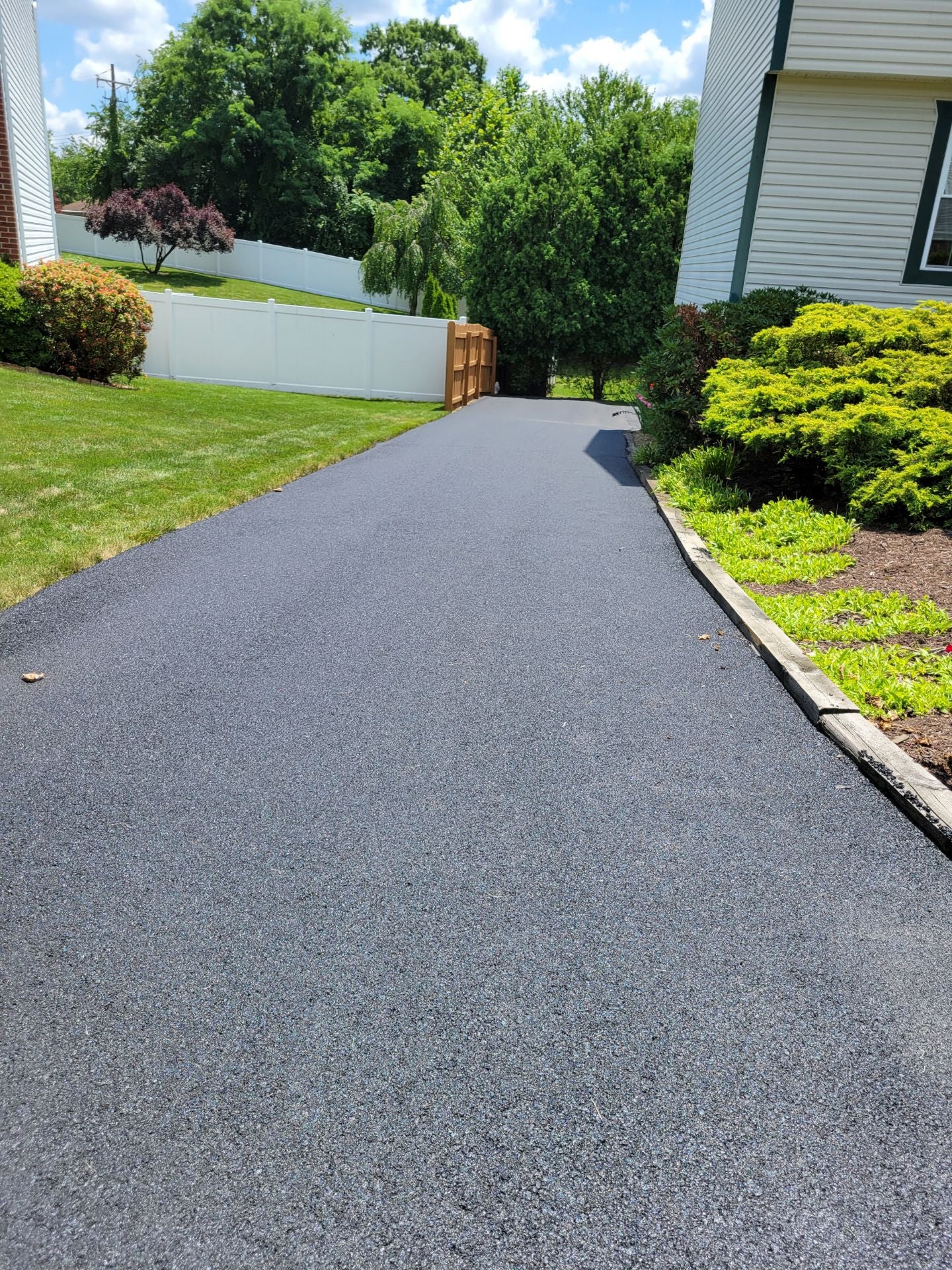Reliable Paving Service to Upgrade Your Outdoor Aesthetics
Reliable Paving Service to Upgrade Your Outdoor Aesthetics
Blog Article
A Review of the Kinds of Asphalt Paving Available Through Professional Paving Solutions
In the realm of building and facilities, comprehending the different types of asphalt paving is necessary for making informed decisions. Expert paving services provide a series of alternatives, consisting of Hot Mix Asphalt, understood for its resilience, and environment-friendly options like Warm Mix Asphalt. Additionally, remedies such as Cold Mix Asphalt and Permeable Asphalt provide to certain requirements, while Recycled Asphalt Pavement highlights sustainability. Each kind offers distinct advantages, but the option eventually relies on job needs and conditions. Analyzing these options discloses more about their corresponding applications and benefits, prompting more exploration right into their viability for your approaching tasks.
Warm Mix Asphalt
What makes hot mix asphalt a recommended option for many paving tasks? Hot mix asphalt (HMA) is renowned for its resilience, convenience, and cost-effectiveness, making it an optimal option for a vast array of applications, from highways to property driveways. HMA is produced by heating asphalt binder and accumulation to high temperatures, which guarantees an uniform mixture that adheres well to surface areas. This procedure permits effective compaction, causing a smooth and resilient surface.
(full details)The high-temperature application of HMA not just helps with much better bonding yet also improves the product's load-bearing ability, enabling it to withstand the stresses imposed by car traffic. Its quick treating time decreases disturbance during construction, allowing streets to reopen quicker.
Ecological factors to consider are additionally resolved with HMA, as it can be reused and recycled in numerous tasks, adding to lasting techniques in paving. In addition, advances in technology have improved its performance qualities, guaranteeing durability and decreased upkeep needs. These characteristics solidify hot mix asphalt as the gold standard in the paving sector, supplying a reliable solution for both sturdy and light-duty surface areas.
Warm Mix Asphalt
Warm mix asphalt (WMA) is significantly made use of in paving jobs because of its ability to be produced and laid at reduced temperature levels compared to traditional warm mix asphalt. This innovation permits the manufacturing of asphalt at temperature levels ranging from 100 ° F to 250 ° F lower than standard techniques, which considerably reduces power usage and greenhouse gas emissions throughout production.

Among the primary benefits of WMA is its extended workability duration, which enables specialists to collaborate with the material for a longer duration before it establishes. This particular is especially beneficial in cooler climate problems, where traditional warm mix asphalt may cool down too swiftly to be laid efficiently. In addition, WMA can be quickly combined with recycled materials, improving sustainability initiatives within the asphalt paving market.
Furthermore, the reduced temperature level application of WMA reduces the threat of thermal segregation, resulting in an extra uniform and resilient sidewalk surface area. Because of this, WMA not only adds to boosted performance features but also decreases the general ecological influence of asphalt paving projects. This combination of advantages makes cozy mix asphalt a significantly popular option amongst leading specialists and customers alike.
Cold Mix Asphalt
Cold mix asphalt is a versatile paving service that is especially reliable for patching and fixing surface areas in various climate condition. Unlike hot mix asphalt, which needs heating, chilly mix asphalt can be used straight from its container, making it an ideal choice for quick repair work and maintenance tasks. This sort of asphalt is composed of a mix of aggregate and emulsified asphalt, allowing it to remain workable at lower temperature levels.
(explore here)Among one of the most considerable benefits of cool mix asphalt is its ease of application. It can be used in both domestic and industrial jobs, supplying a sensible alternative for dealing with splits, fractures, and other surface imperfections. Additionally, cold mix asphalt appropriates for use in wet conditions, enabling repairs to be made throughout stormy climate.
While it is commonly not made use of for hefty web traffic surfaces due to its reduced toughness contrasted to hot mix asphalt, cold mix is an excellent choice for short-lived remedies or locations with lighter web traffic. Its flexibility and adaptability make it a beneficial alternative for preserving asphalt surfaces, making certain durability and efficiency even under challenging problems.
Permeable Asphalt

Absorptive asphalt presents an innovative remedy for handling stormwater runoff, attending to a vital environmental worry my blog frequently connected with standard asphalt paving. This kind of asphalt is created with a porous framework, allowing rain to penetrate with the surface area and into a sub-base, where it can be progressively absorbed right into the ground or managed in a regulated manner.
The advantages of absorptive asphalt extend past water management; they likewise add to decreasing city heat island results and improving groundwater recharge - paving. By decreasing surface drainage, permeable asphalt assists lower the risk of flooding and disintegration, which can be specifically advantageous in city locations prone to hefty rains
Installation of permeable asphalt needs mindful consideration of site conditions and correct layout to guarantee ideal efficiency. It is necessary to create a well-drained sub-base and to preserve the leaks in the structure via normal cleansing to prevent blocking from particles and debris.
Recycled Asphalt Pavement
Recycled asphalt pavement (RAP) is an increasingly preferred selection in the paving sector, using both financial and environmental advantages. By reusing asphalt millings from old highways, RAP lowers the demand for brand-new materials, thus lowering prices and decreasing the ecological effect related to asphalt manufacturing.
The procedure of developing RAP includes grating existing asphalt surfaces and refining the material to remove impurities. This redeemed material is then incorporated with new asphalt binder and aggregates to develop a high-grade paving mix. Using RAP can substantially decrease the quantity of waste sent out to garbage dumps, adding to a much more sustainable strategy to road construction.
RAP is specifically useful for projects where spending plan restrictions are a problem, as it can reduce material prices by up to 30%. In addition, the performance of RAP is equivalent to that of virgin asphalt, supplying durability and long life. It is suitable for numerous applications, including property driveways, commercial car park, and roadway resurfacing.
As communities and specialists progressively prioritize lasting techniques, recycled asphalt sidewalk sticks out as a feasible solution that satisfies both financial needs and environmental duties, making it a compelling choice for modern-day paving projects.

Final Thought
In recap, specialist paving solutions provide a diverse variety of asphalt paving alternatives tailored to particular building needs. Each kind, including Hot Mix Asphalt, Warm Mix Asphalt, Cold Mix Asphalt, Permeable Asphalt, and Recycled Asphalt Pavement, provides one-of-a-kind benefits that accommodate both residential and industrial requirements - paving service. The choice of the ideal asphalt kind not just boosts resilience and performance however likewise addresses environmental worries and sustainability, making sure reliable and reliable leading options
Report this page